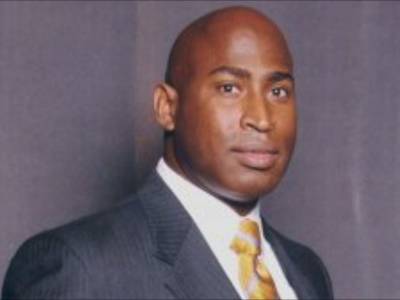A Literary Engagement:
The Scarlet Letter [ by Mark C Hamilton]
The Scarlet Letter is an intriguing novel. The deep dark stain upon pages impresses upon one, a desire to confess his or her human strain.
Hawthorne wrote a tale exposing the rotten underbelly of sin. Highlighting the depravity of humanity from every stratum—from the pastor to the physician, and the peasant to her progeny. The cure for the stinking rottenness of sin is not found in medicine’s bitter herbs but in sweet confession and repentance. The literary aid of stark contrasts is employed by the author to further give credence to the point he is trying to make. No one is exempt from sin’s slithering reach.
Hawthorne masterfully used the main characters as object lessons in dealing with the issue of humanity’s sinfulness. At first glance, the focus brings in full view the lettered mistress. Imprisoned for her sin, Hester emerges from captivity to an angry mob to ascend the scaffold of shame’s confession and its chilling effects. Mistress Hester Prynne’s sin of adultery that brought her to the pillory took on a deeper personal form when her husband reappeared. From his strategic place he demanded her silence. Was his seemingly untimely arrival punctual to add to her shame? While on the pillory the Reverend Arthur Dimmesdale without speaking a word imposed upon her to keep their secret.
As the iron- gate closed behind her, she received a visit from Roger Chillingworth requiring further secrecy. For the beginning of time sin has demanded our secrecy. Adam and Eve in efforts to cover their nakedness indentured the tools of seamstress and sewed leaves together to conceal their innermost self from each other. More sadly, they hid from God while He sought for them in the garden. What irony! The tools were utilized for hiding sin of Adam and Eve, for Hester is was for her exposure. Despite the overwhelming need to conceal sin, sin consequences are real. God said to our fallen parents “for in the day that thou eatest thereof thou shalt surely die” (Genesis 2:17b). At the point wherein they ate all humanity became subject to the peril of death brought about sin and it agencies.
The torment of unconfessed sin burned in the bosom of Arthur Dimmesdale as the mark he bore upon his chest. In my bewilderment, I lament with and for him. The secret sin scourged him consciously and subconsciously. The torturous arm of sin pressed upon his breast deliberately squeezing the life out of him. His resolve to secrecy became the constrictor of death for he sought not forgiveness. God’s forgiving grace is always available for those who solicited it. Why didst not the young minister reach for it? This then, is the plight of many who wear their marks of torment as a martyr his stripes. In the following words, Hawthorne captures the idea.
It may be they keep silent by the constitution of their nature. Or—can we suppose it? —guilty as they might be, retaining, nevertheless, a zeal for God’s glory and a man’s welfare, they shrink from displaying themselves black and filthy in the view of man; because thenceforward, no good can be achieved by them; no evil of the past be redeemed by better service. So, to their own unutterable torment, they go about among their fellow creatures, looking like pure as new-fallen snow; while their hearts are all speckled and spotted with iniquity of which they cannot rid themselves (116).
Roger Chillingworth found himself in the crosshairs of sin that was not his own. Yet he became an active participant. In his narrative we find a man experiencing the demise from unforgiven sin. The beautiful maiden, who became his wife, had given herself to another and product of their sin is seen in the light of day in person of the devilish imp named Pearl. Chillingworth singular mission was the plan to inflict pain upon the man who shared Hester’s adulterous bed. Was it for love or revenge? Methinks the later. “At first, his expression was had been calm, meditative, scholarlike. Now, there was something ugly and evil I his face…which, grew still the more obvious to sight” (Hawthorne). He morphed from a seemingly genteel and calm personhood to a more sinister in deportment. Such demise is brought about from bitterroot unforgiveness.
I desire not to speak of the lettered woman for her sin had been given its just punishment according to the laws of the Puritan colony. The question is, is man’s judgment enough for a stain so deep? No, only Christ can. He is the One that removes our scarlet letter.
Only He Can Save
From my innermost being I lament. I see my wretchedness and cry silent hot tears. At my own hand I scourge my body inflicting degrees of pain to numb torrid torment. In my self-affliction peace becomes the more elusive. Like Arthur Dimmesdale my bones rot from within. Broken and beaten, I fall. Fall to rise anew—forgiven and set free from the tumult of my sinfulness.
My strength is gone and the fatness of my soul hath withered away. My salvation seems afar off. However, I know deliverance comes from His hands only He can save. I call on the Holy Spirit He moves me to confession and with a baptism in tears He comes to my rescue.
Psalm 32
Blessed is he whose transgression is forgiven, whose sin is covered. 2 Blessed is the man unto whom the Lord imputeth not iniquity, and in whose spirit there is no guile. 3 When I kept silence, my bones waxed old through my roaring all the day long. 4 For day and night thy hand was heavy upon me: my moisture is turned into the drought of summer.
Selah.
5 I acknowledge my sin unto thee, and mine iniquity have I not hid. I said, I will confess my transgressions unto the Lord; and thou forgavest the iniquity of my sin.
Selah.
6 For this shall every one that is godly pray unto thee in a time when thou mayest be found: surely in the floods of great waters they shall not come nigh unto him. 7 Thou art my hiding place; thou shalt preserve me from trouble; thou shalt compass me about with songs of deliverance.
Selah.
8 I will instruct thee and teach thee in the way which thou shalt go: I will guide thee with mine eye. 9 Be ye not as the horse, or as the mule, which have no understanding: whose mouth must be held in with bit and bridle, lest they come near unto thee. 10 Many sorrows shall be to the wicked: but he that trusteth in the Lord, mercy shall compass him about.
11 Be glad in the Lord, and rejoice, ye righteous: and shout for joy, all ye that are upright in heart.
Word Count: 1,140
Works Cited
Hawthorne, Nathaniel. The Scarlet Letter. New York: Penguin Group, 2003. Print.


